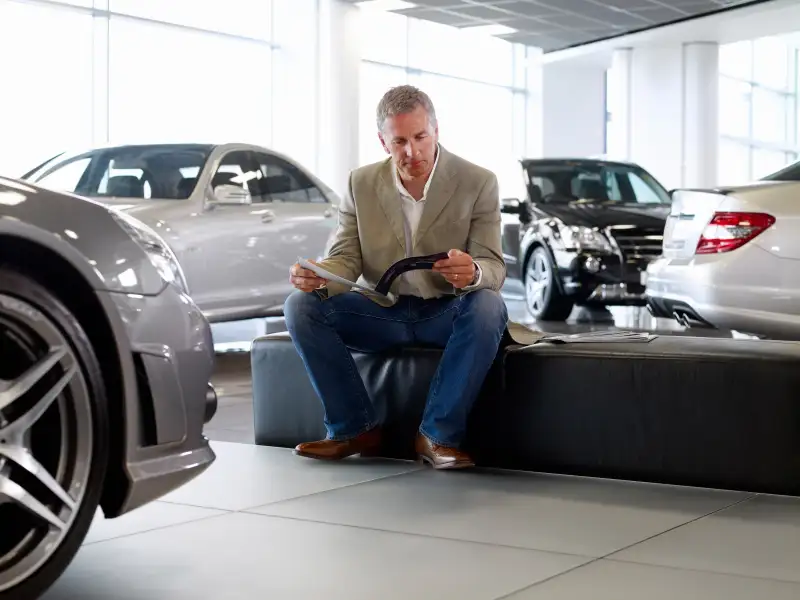
Some people are car experts and know what every car is worth. Others, though, tend to feel at sea when dealing with the pricing of vehicles. If you are someone that fits into the latter category, this article will do you well!
Have a mechanic look over any used car you are considering. If they say no, leave. A mechanic can offer an impartial opinion about the vehicle. He can determine whether the car has hidden damage from previous accidents or being submersed.
If you are susceptible to pressure selling, bring a friend along. You can bring a family member or friend to help you with negotiations. Discuss your needs and the limits of your budget with your adviser before you visit a car lot.
If you want a new car, contact the bank first to see if you qualify for a loan. This is just for your own security. The dealership probably can find better rates, but it is nice to have an idea ahead of time.
Use the Internet to shop. You’ll find almost any and every vehicle online. Know about the particular vehicles you are thinking about purchasing before you visit the dealership. The Internet is a great place to find information such as prices, reviews, vehicle specifications and a lot more.
Buying a new car is an exciting, but challenging, experience. Use your computer and the Internet for comparison shopping to save yourself a lot of dollars and time. A variety of dealers offer their whole stock and pricing on the Internet. This can help you get a general idea of what you’re looking for, before you even go to a dealership.
Visit an auto show so you can more easily determine which types of vehicles would suit your needs. This is a great opportunity to look over many different cars in one place. This also gives you the opportunity to talk to knowledgeable folks. After visiting an auto show, you can know more about which cars appeal to you.
Social Security
Don’t give any dealer a social security number. A lot of dealerships will ask you for this information so that they can run your credit. Many credit report checks can be a red flag to financiers. Wait until you know you have a deal ironed out before you offer your Social Security number.
You need to know what you can spend before doing it. That number should be about the amount you want to spend, and the research you’ve done about the value of whatever car you want.
Ask if you can have an independent mechanic do an inspection. Be sure you can trust the mechanic. Never use the mechanic the dealer suggests. Your mechanic will tell you what is wrong with the car, and whether the price is right.
Wait until the month’s end to shop for your car if you can. Salesman need to hit a quota per month, so this time is optimal for shopping. Wait a couple of days to deal with them; when the month comes to an end, you are more likely to come away with the best deal.
Speak to your insurance company so you’re able to get an estimate on the vehicle you’re thinking of buying. When you find out how much your insurance premiums will cost, the car may not seem like such a good deal. Explore your options to find the best possible price tag with the lowest, most affordable insurance rates.
Wait until you get an offer you are happy with before you mention your trade-in. You might not get what you think you deserve for your older vehicle, but have some flexibility in negotiations because you are shaving off the cost of the newer car. You’ve already put in a lot of time and effort, so closing the deal is essential.
Don’t overdress when you visit the car dealership. It won’t be easy to tell a salesperson that you need a great rate if you are dressed up in fancy clothes.
Research the “hidden” costs of the car. Cars may have different resale values, maintenance costs, insurance costs and fuel efficiency. Check out the oil-change requirements, part costs, and gas requirements prior to buying. These can change the cost of your car, significantly, in the long run.
Be open to other kinds of cars. Usually most car manufacturers offer all type of cars. Each of these have their own version of a compact. Comparison shopping can help you secure the best deal.
Speak to loved ones about where they’ve bought their cars. Did they have a good experience? Talk to them about specifics like after sales service and the condition of their car six months down the road. If these people are all recommending the same place, then you should ensure you visit it.
Find out how much your vehicle is worth before trading it in. When you know how much you’ll get back, you’ll be better prepared to accept an offer on the new car. Knowledge will help you get great offers when you trade in your vehicle.
If you’re looking for a car, whether used or new, know your budget. Make a detailed list of what you can safely afford and then start conducting your research to find the greatest value. If you don’t do this, you might purchase a vehicle that will rack up your debt.
Avoid letting the salesperson know you are in need of a car immediately. Letting them know you are desperate for a vehicle is never a good idea. This can lead to pressure. You should instead act like you are in no hurry.
Do not feel overwhelmed any longer. You know what it takes to buy a car with your brain. You can be happier and more content when you drive a new car you know you got a great deal on. Have fun shopping!